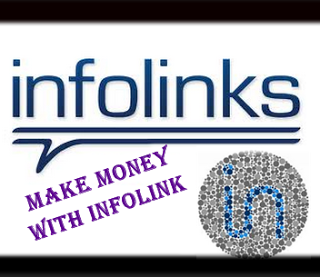We know maximum peoples in the world use Google for index their own websites but i want to tell them there are some other alternatives of it also which can generate good amount of free organic traffic for their web portals and few of them give high page rank do follow back links also.
You can find name of so many engine and other free sites also in list for submission of your websites in so many search engine by making one click only. If you want to make your website more searchable and able to find from different free search engine then you must be hurry for free listing your websites.
Most of the peoples submit their web page URL�s directly some uses free ping sites list for making alert best search engine about your new web page or blog post which you created recently.
1 � https://www.google.com/webmasters/tools/submit-url
2 � https://search.yahoo.com/info/submit.html
3 � http://www.bing.com/toolbox/submit-site-url
4 � http://www.dmoz.org/add.html
5 � http://www.excitedirectory.com/submit.php
6 � http://www.secretsearchenginelabs.com/add-url.php ( It gives do follow back links also )
7- http://www.whatuseek.com/addurl.shtml
Free submission in search engine
http://www.jayde.com/submit.html
http://www.scrubtheweb.com/addurl.html
http://www.exactseek.com/add.html
http://addurl.altavista.com/
http://www.activesearchresults.com/addwebsite.php
http://www.fybersearch.com/add-url.php
http://www.ghetosearch.com/add-url.php
http://www.anoox.com/add_for_indexing_free.php
http://searchsight.com/submit.htm
http://search.sonicrun.com/freelisting
http://www.somuch.com/submit-links/
http://www.ghetosearch.com/add-url.php
http://www.freeprwebdirectory.com/submit.php
http://www.webworldindex.com/
http://viesearch.com/submit
http://www.a1webdirectory.org/submit.php
http://www.onlinesociety.org/submit.php
http://search.sonicrun.com/freelisting
http://mastermoz.com/register.php
http://onemission.com/
http://linkcentre.com/
http://www.elitesitesdirectory.com/
http://www.directory-free.com/submit/submit.php
http://www.info-listings.com/submit.php
http://www.onlinesociety.org/submit.php
http://www.1websdirectory.com/
http://www.infotiger.com/addurl.html
http://www.elitesitesdirectory.com/
http://www.surfsafely.com/urladd.html
http://www.businessseek.biz/page.php?page=submission-policy
http://www.onemilliondirectory.com/submit.php
http://www.illumirate.com/
http://www.surfsafely.com/urladd.html
http://www.1websdirectory.com/
http://www.synergy-directory.com/submit.php
http://www.gigablast.com/addurl
http://www.piseries.com/
http://www.intelseek.com/add_url_form.asp
http://www.kiwidir.com/submit.php
http://www.submit.biz/
http://www.247webdirectory.com/submit.aspx
http://www.boitho.com/addyourlink.htm.en
http://www.blackabsolute.com/submit.php
http://www.9sites.net/addurl.php
http://www.rdirectory.net/submit.php
http://www.nexusdirectory.com/submit.php
http://www.sitelistings.net/submit.php
http://www.surfsafely.com/urladd.html
http://www.amfibi.com/addurl/
http://www.priordirectory.com/submit.php
http://www.ezistreet.com/submit/
http://www.gainweb.org/submit.php
http://www.directoryfire.com/submit.php
http://www.triplewdirectory.com/submit.php
http://polypat.org/submit.php
http://www.exalead.com/search/web/submit/
http://www.towersearch.com/addurl.php
http://www.splatsearch.com/submit.html
http://addurl.amfibi.com/
http://www.ghetosearch.com/add-url.php
http://www.feedplex.com/add-url.php
http://searchsight.com/submit.htm
http://www.claymont.com/asublegacy.asp
When you will free submit your site in search engine then crawler will crawl web pages of your website then after finding right structure it will index it properly and remember you must have properly structured site map in your site to faster and better indexing.
You can find name of so many engine and other free sites also in list for submission of your websites in so many search engine by making one click only. If you want to make your website more searchable and able to find from different free search engine then you must be hurry for free listing your websites.
Most of the peoples submit their web page URL�s directly some uses free ping sites list for making alert best search engine about your new web page or blog post which you created recently.
1 � https://www.google.com/webmasters/tools/submit-url
2 � https://search.yahoo.com/info/submit.html
3 � http://www.bing.com/toolbox/submit-site-url
4 � http://www.dmoz.org/add.html
5 � http://www.excitedirectory.com/submit.php
6 � http://www.secretsearchenginelabs.com/add-url.php ( It gives do follow back links also )
7- http://www.whatuseek.com/addurl.shtml
Free submission in search engine
http://www.jayde.com/submit.html
http://www.scrubtheweb.com/addurl.html
http://www.exactseek.com/add.html
http://addurl.altavista.com/
http://www.activesearchresults.com/addwebsite.php
http://www.fybersearch.com/add-url.php
http://www.ghetosearch.com/add-url.php
http://www.anoox.com/add_for_indexing_free.php
http://searchsight.com/submit.htm
http://search.sonicrun.com/freelisting
http://www.somuch.com/submit-links/
http://www.ghetosearch.com/add-url.php
http://www.freeprwebdirectory.com/submit.php
http://www.webworldindex.com/
http://viesearch.com/submit
http://www.a1webdirectory.org/submit.php
http://www.onlinesociety.org/submit.php
http://search.sonicrun.com/freelisting
http://mastermoz.com/register.php
http://onemission.com/
http://linkcentre.com/
http://www.elitesitesdirectory.com/
http://www.directory-free.com/submit/submit.php
http://www.info-listings.com/submit.php
http://www.onlinesociety.org/submit.php
http://www.1websdirectory.com/
http://www.infotiger.com/addurl.html
http://www.elitesitesdirectory.com/
http://www.surfsafely.com/urladd.html
http://www.businessseek.biz/page.php?page=submission-policy
http://www.onemilliondirectory.com/submit.php
http://www.illumirate.com/
http://www.surfsafely.com/urladd.html
http://www.1websdirectory.com/
http://www.synergy-directory.com/submit.php
http://www.gigablast.com/addurl
http://www.piseries.com/
http://www.intelseek.com/add_url_form.asp
http://www.kiwidir.com/submit.php
http://www.submit.biz/
http://www.247webdirectory.com/submit.aspx
http://www.boitho.com/addyourlink.htm.en
http://www.blackabsolute.com/submit.php
http://www.9sites.net/addurl.php
http://www.rdirectory.net/submit.php
http://www.nexusdirectory.com/submit.php
http://www.sitelistings.net/submit.php
http://www.surfsafely.com/urladd.html
http://www.amfibi.com/addurl/
http://www.priordirectory.com/submit.php
http://www.ezistreet.com/submit/
http://www.gainweb.org/submit.php
http://www.directoryfire.com/submit.php
http://www.triplewdirectory.com/submit.php
http://polypat.org/submit.php
http://www.exalead.com/search/web/submit/
http://www.towersearch.com/addurl.php
http://www.splatsearch.com/submit.html
http://addurl.amfibi.com/
http://www.ghetosearch.com/add-url.php
http://www.feedplex.com/add-url.php
http://searchsight.com/submit.htm
http://www.claymont.com/asublegacy.asp
When you will free submit your site in search engine then crawler will crawl web pages of your website then after finding right structure it will index it properly and remember you must have properly structured site map in your site to faster and better indexing.








